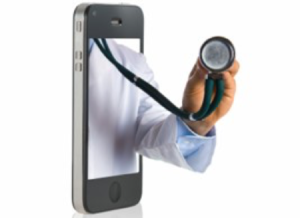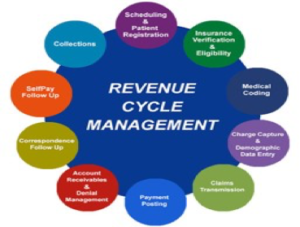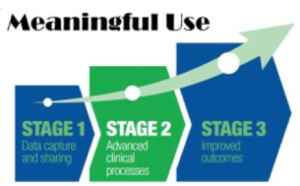This blog is a follow-up to one we published several weeks ago in which we posed the question “Are you becoming lost in the vast array of new healthcare terms, acronyms and abbreviations that have been introduced and bantered around”? if yes, don’t be alarmed! This is one of the challenges that sales professionals face in today’s market. For specialty sales representatives many of these new terms, and acronyms relate to the specific product or service they sell.
For other sales professionals these terms are like a foreign language and they are unaware how it affects their business. In order to gain credibility, skilled sales professionals need to arm themselves with up to date healthcare industry knowledge. Embracing the changes in language allows you to engage with multiple stakeholders throughout the healthcare community. In addition, you will increase your ability to become a respected partner with your customer. Mastering today’s health care terminology knowledge is mandatory to success.
Here are some additional definitions and explanations that should help reduce your anxiety and increase your knowledge base. In italics are the reasons why each term, acronym and abbreviation is important.
- mHealth
 This is an abbreviation for mobile health, the term used for all mobile devices and apps that allow patients and providers to improve the diagnosis, treatment, monitoring, and education of patients. It is a form of Telemedicine that uses wireless and other cell phone technologies and is a rapidly growing area for both patients and providers.
This is an abbreviation for mobile health, the term used for all mobile devices and apps that allow patients and providers to improve the diagnosis, treatment, monitoring, and education of patients. It is a form of Telemedicine that uses wireless and other cell phone technologies and is a rapidly growing area for both patients and providers.
mHealth leads to increased patient engagement, improved health outcomes, and reduced costs.
- Revenue Cycle Management (RCM)

Revenue Cycle Management encompasses the entire medical billing process that manages all claims eligibility, submission, processing and payments and reporting. In a hospital the process begins when the patient enters the facility, in a physician office it begins when the patient makes an appointment. In both situations the patient provides their name, contact information and insurance company. RCM ends when the balance on the account is zero.
For a hospital or provider, it’s their respiratory system because it assures that they get paid for what they do and that they get paid in a timely manner.
- Meaningful Use

The goal of meaningful use is to promote the adoption of electronic health records by eligible professionals or eligible hospitals to improve health care in the U.S. Meaningful use is the set of standards defined by the Centers for Medicare and Medicaid Services (CMS) Incentive Programs that governs the use of these electronic health records and perceived level of quality care provided which when combined allows these eligible professionals and hospitals to earn incentive payments by meeting specific criteria.
There are Three Stages of Meaningful Use:
- Stage 1: 2011-2012
- Data capture and sharing of data
- Stage: 2014
- Advanced clinical processes
- Stage 3: 2016
- Improved outcomes
This is important because it provides the following benefits:
- Complete and accurate information: Providers will have the most current and thorough information about a patient before they see them.
- Better access to information: Electronic medical records allow health information to be shared amongst providers thus speeding up delivery of care and eliminating redundancy.
- Patient empowerment: Patients will have access to their medical records and can take an active role in their care through improved knowledge and by sharing their information with family members.
- Physician Payments Sunshine Act

The Sunshine Act requires companies that make drugs, medical devices and biological medicines to report payments and items of value that are given to physicians and teaching hospitals. The specifics of the law have been outlined in the Federal Register.
The law also requires that manufacturers and group purchasing organizations (GPOs) must report certain ownership interests by physicians and their immediate family. The law states that:
- Any prescription drug or device manufacturer operating in the U.S. must report payments to physicians and teaching hospitals to the Center for Medicare and Medicaid Services (CMS). All physician disclosure data will then be posted on a public website.
- Physicians are defined as all doctors of medicine, osteopathy, podiatry, optometry, dentistry and chiropractic medicine.
- A teaching hospital is any hospital that receives payment from Medicare for graduate medical education.
- In 2016 any payments or transfers of value and ownership investment interests worth at least $10.27 and transactions of less than $10.00 if they total $102.19 or more in a calendar year must be reported.
The types of items that must be reported are consulting fees, honorariums, gifts, speaking fees, travel and lodging, food and beverage, entertainment, parking, etc. CMS can levy $1,000-$10,000 fines on manufacturers or the GPO for each payment or transfer of value not reported and $10,000 – $100,000 for knowingly failing to report a payment or transfer of value.
The law is designed to provide transparency for patients and foster public trust in the medical profession. It requires pharmaceutical, medical device and biologic manufacturers to disclose payments to physicians and teaching hospitals on a public database. This will allow anyone to see how much a physician is being paid or what gifts were given to physicians by these organization, above a minimum threshold.
- Core Measures

A set of care processes which were developed by The Joint Commission to improve the quality of health care by implementing a national, standardized performance measurement system. The Core Measures were derived largely from a set of quality indicators defined by the Centers for Medicare and Medicaid Services (CMS). They have been shown to reduce the risk of complications, prevent recurrences and otherwise treat the majority of patients who come to a hospital for treatment of a condition or illness.
Core Measures help hospitals improve the quality of patient care by focusing on the actual results of care.
Parting Thoughts
Understanding the language of healthcare improves your business acumen, provides immediate credibility and allows you to have better conversations with existing and potential customers.
These terms and others are included in our New Book Entitled “Selling to Hospitals & Healthcare Organizations: A Glossary of Business Acumen & Personnel Available on Amazon and Kindle.
As always we welcome your thoughts and input. Let’s start a discussion and elevate the sales profession with a thoughtful, civil and informative discourse.


